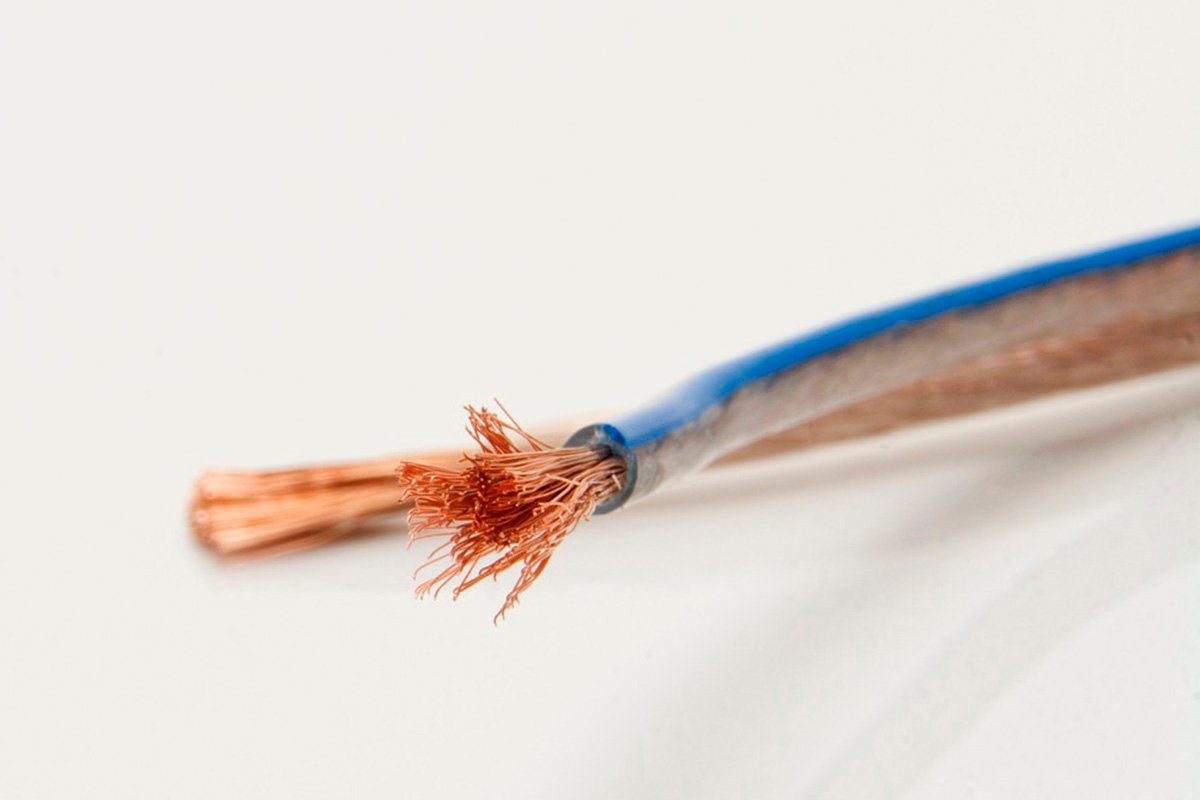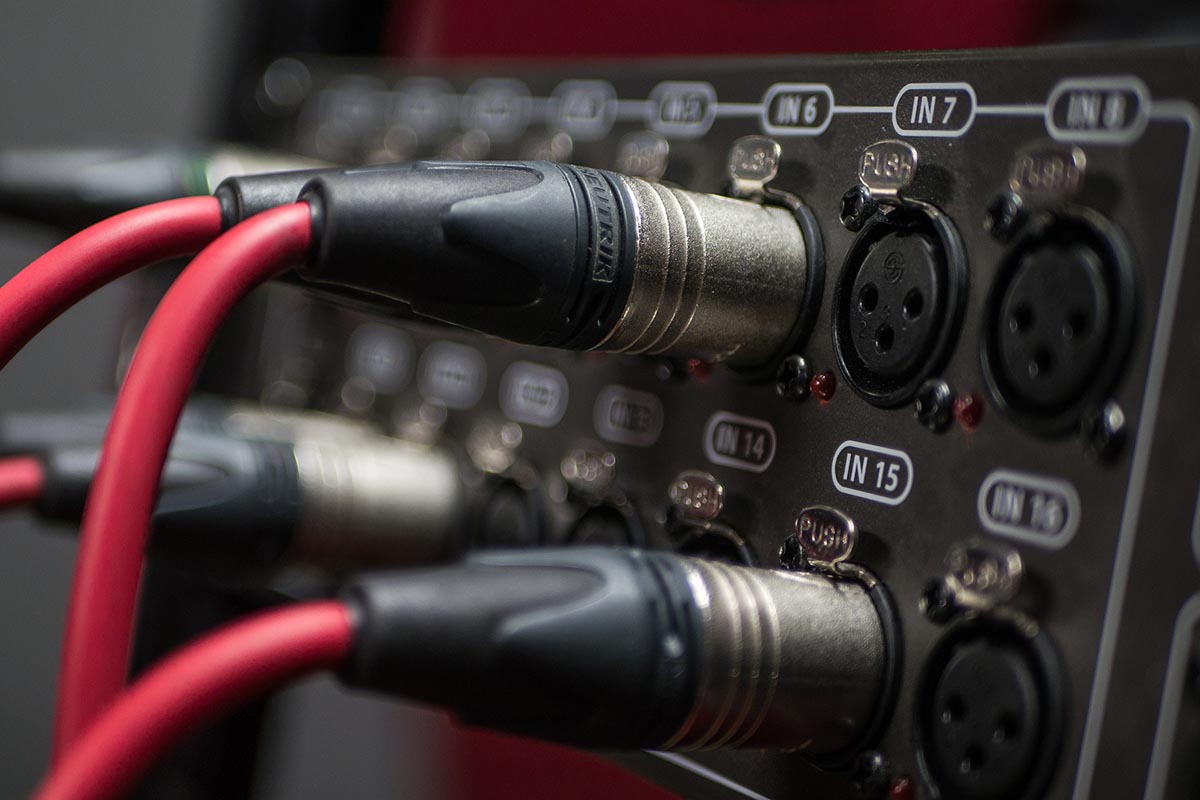If you’re building a home theater system, all the cabling can become fussy and complicated. And some speakers are far away from the amp, so you have to use a longer cable for them. But do speaker cables need to be the same length?
Speaker cables don’t need to be the same length. The length of the speaker wire won’t affect the sound quality unless the cable is extremely long. One speaker can have a cable much longer than another, and there won’t be a delay.
In this article, I’ll explain everything you need to know about speaker wires. You’ll learn how long and thick of a wire you need to connect your speakers.
Page Contents
Why Speaker Cable Length Doesn’t Need To Be the Same Length

You can have a speaker that connects to your amp using a 16 ft (4.88 m) long cable, and it still won’t affect sound quality. Of course, this is assuming that the wire is thick enough.
Another speaker could be using a 1 ft (0.30 m) cable in the same speaker system. There still won’t be any delay between the two speakers.
The false presumption that speaker cables need to be the same length isn’t completely illogical, though.
A little power is lost when a wire is long. This is called line loss. However, its effects aren’t significant enough to create a difference in speaker wires.
Chances are, you won’t use a cable longer than 30 ft (9.14 m) anyway. This is nowhere long enough to create a measurable impact on the sound quality.
Of course, you can’t use the same wire gauge for your whole speaker system if the cable length is different. The speakers closer to your amp can get by with a higher wire gauge.
It’s fairly common to use a longer wire for subwoofers. Subwoofers should be in the center of the room, so it makes sense.
In that case, you should use a thick gauge wire. You want to counteract both the cable length and the power-hungry subwoofer.
I recommend the InstallGear Speaker Wire (available on Amazon.com). The cable is 50 ft (15.24 m) long and made of 99.9% oxygen-free copper. It’s the perfect length and gauge for any speaker, not just your subwoofer.
When Does Speaker Cable Length Matter?

Speaker cable length matters when the cable you’re using is unnecessarily long. The difference between resistance and speaker impedance can affect sound quality. Shorter wires have less resistance than longer ones.
In a nutshell, a longer wire has more resistance than a shorter one.
Cambridge Audio explains that when resistance is greater than 5% of speaker impedance, the sound quality gets noticeably worse.
To ensure you’re getting the most out of your speakers, always use the shortest cable possible.
You don’t have to worry about cable length unless you’re doing cable wiring for commercial purposes.
Of course, it doesn’t have to be so short that you can’t even move your speakers. Leave a foot or two of extra cable for future headroom.
Ultimately, it doesn’t matter that much. You can always buy new cables if the ones you have are too short.
Should Speaker Cables for L & R Channels Be the Same Length?
Speaker cables for left and right channels don’t need to be the same length. The sound won’t be delayed, and the sound quality stays the same. However, if there’s a significant difference in wire length, sound quality starts to suffer.
But it’s unlikely that you’ll use different cable lengths for two channels in the first place.
Whenever possible, use the same cable length for different channels. You can splice a cable to make it shorter and match it to the other one. Also, having the same length is more practical.
It’ll be easier to mount the speakers if they have the same length. If you’re very particular like me, you want your speakers to sit the same on each side. It’s easier to do it if the wire length limits you.
Of course, this is all assuming that you’re using custom wiring. If the speakers come prewired, you’ll already have the same cable length.
If you’re using two different cable lengths for your left and right channel, test them first. If you can’t hear any difference between the two, you’re good to go.
Does Speaker Wire Gauge Matter?

Speaker wire gauge matters because it affects the signal strength. Thicker wires (lower gauge wires) can carry a more powerful signal from your amp to your speaker. Also, lower gauge wires can convey a signal over a longer distance.
So, what kind of gauge do you need for your new home theater setup?
Sony recommends anything from 12 to 16 gauge.
So, a nice middle would be 14 gauge, which is what I’d recommend too. I’m sure that it’ll work for you too, provided your amp is in the same room.
The GearIT 14 Gauge Speaker Wire (available on Amazon.com) is excellent. It’s an oxygen-free copper wire that can power any speaker up to 50 ft (15.24 m). You can use it in your car or home.
The speaker impedance (measured in ohms) also matters. The lower the impedance, the shorter the range.
Roger Russell has provided a useful table for the maximum wire length that you can use:
| Wire Size | 2 Ω load | 4 Ω load | 6 Ω load | 8 Ω load |
| 22 AWG | 3 ft (0.91 m) | 6 ft (1.83 m) | 9 ft (2.74 m) | 12 ft (3.66 m) |
| 20 AWG | 5 ft (1.52 m) | 10 ft (3.05 m) | 15 ft (4.57 m) | 20 ft (6.10 m) |
| 18 AWG | 8 ft (2.44 m) | 16 ft (4.88 m) | 24 ft (7.32 m) | 32 ft (9.75 m) |
| 16 AWG | 12 ft (3.66 m) | 24 ft (7.32 m) | 36 ft (10.97 m) | 48 ft (14.63 m) |
| 14 AWG | 20 ft (6.10 m) | 40 ft (12.19 m) | 60 ft (18.29 m) | 80 ft (24.38 m) |
| 12 AWG | 30 ft (9.14 m) | 60 ft (18.29 m) | 90 ft (27.43 m) | 120 ft (36.58 m) |
| 10 AWG | 50 ft (15.24 m) | 100 ft (30.48 m) | 150 ft (45.72 m) | 200 ft (60.96 m) |
You shouldn’t use wires longer than 50 ft (15.24 m) because it affects sound quality.
Do I Need To Upgrade My Speaker Wires?
You don’t need to upgrade your speaker wires unless there’s distortion. If you have sound quality issues, a thicker wire is a viable solution. Thinner wires can’t carry the signal over a long distance.
Refer to the table above to determine what wire gauge you need for your speaker.
If you can’t determine the impedance of your speakers, this YouTube video can help:
In brief, the more speakers you connect to a single amp, the thicker wiring you need.
Note that you can’t upgrade your wires. Don’t get scammed by expensive speaker wires because you won’t get a better sound. They either work as they should, or they don’t work at all.
Speaker wires won’t affect sound quality if you’re using the correct gauge.
The materials in the wire do matter, but most speaker wires on the market today are good enough.
A good choice is the InstallGear Premium Speaker Wire (available on Amazon.com). It uses CCA, which stands for copper-clad aluminum.
It’s an affordable yet effective material for speaker wires. Save your money by using this wire for all your speakers.
Final Thoughts
Speaker cable length doesn’t matter that much. Nonetheless, the wires should be the same length for best results. If the difference is large, it can become a problem. You could experience distortion or sound quality issues.
However, you can fix all that by using a lower gauge wire. Thicker wires have a better range. Use them for speakers that are far away from the amp.

